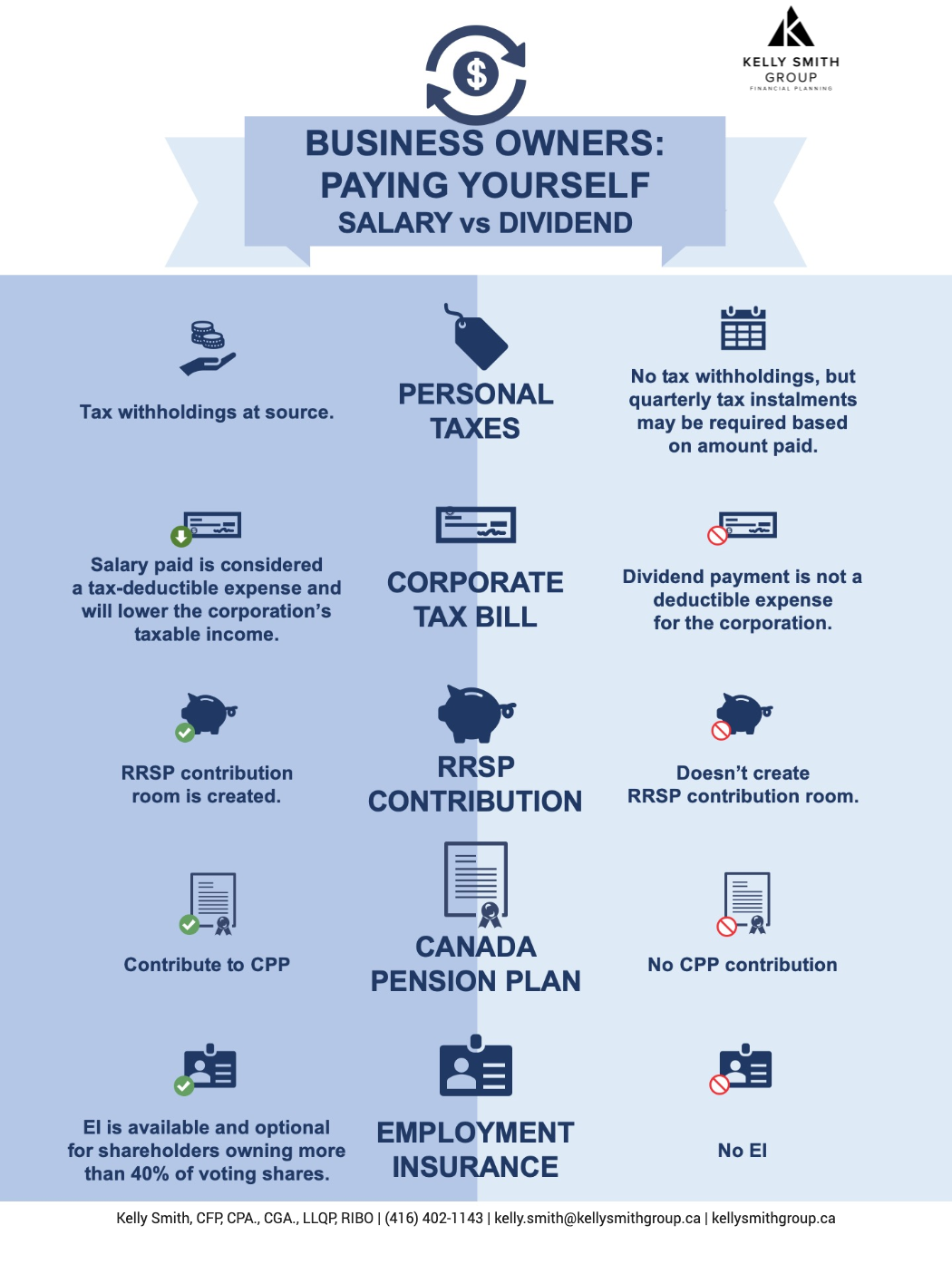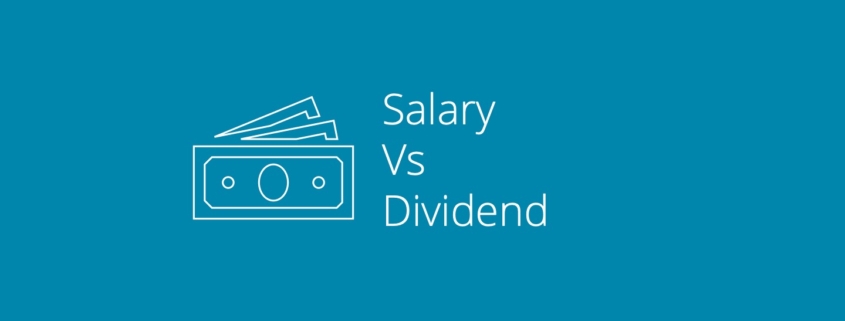Salary vs Dividend
As a business owner, you have the ability to pay yourself a salary or dividend or a combination of both. In this article and infographic, we will examine the difference between salary and dividends and review the advantages and disadvantages of each.
When deciding to pay yourself as a business owner, please review these factors:
-
How much do you need?
-
How much tax?
-
Other considerations including retirement and employment insurance.
How much do you need?
Determine your cash flow on a personal and corporate level.
-
What’s your personal after-tax cash flow need?
-
What’s your corporate cash flow need?
How much tax?
Figure out how much you will pay in tax. Business owners understand that tax is a sizeable expense.
-
What’s your personal income tax rate?
Depending on the province you reside in and your income, make sure you also include income from other sources to determine your tax rate. (Example: old age security, pension, rental, investment income etc.)
If you decide to pay out in dividends, check if you will be paying out eligible or ineligible dividends. The taxation of eligible dividends is more favorable than ineligible dividends from an individual income tax standpoint.
-
What’s your corporation’s income tax rate?
For taxation year 2020, the small business federal tax rate is 9% . Please also remember, if you pay out salary, salary is considered a tax-deductible expense, therefore this will lower the corporation’s taxable income versus paying out dividends will not lower the corporation’s taxable income.
Other considerations
If you pay yourself a salary, these options are available.
-
Do you need RRSP contribution room?
As part of this, it’s worth considering ensuring that you receive a salary high enough to take full advantage of the maximum RRSP annual contribution that you can make.
-
Are you interested in contributing to the Canada Pension Plan?
This is unique to your circumstances and a cost-benefit analysis to determine the amount of contributions makes sense.
-
Do you need employment insurance (EI)?
For shareholders owning more than 40% of voting shares, EI is optional . There are situations worth careful thought such as maternity benefit, parental benefit, sickness benefit, compassionate care benefit, family caregiver benefit for children or family caregiver benefit for adults.
The infographic below summarizes the difference between Salary vs. Dividend.

We would also advise that you get in touch with your accountant to help you determine the best mix for your unique situation.



